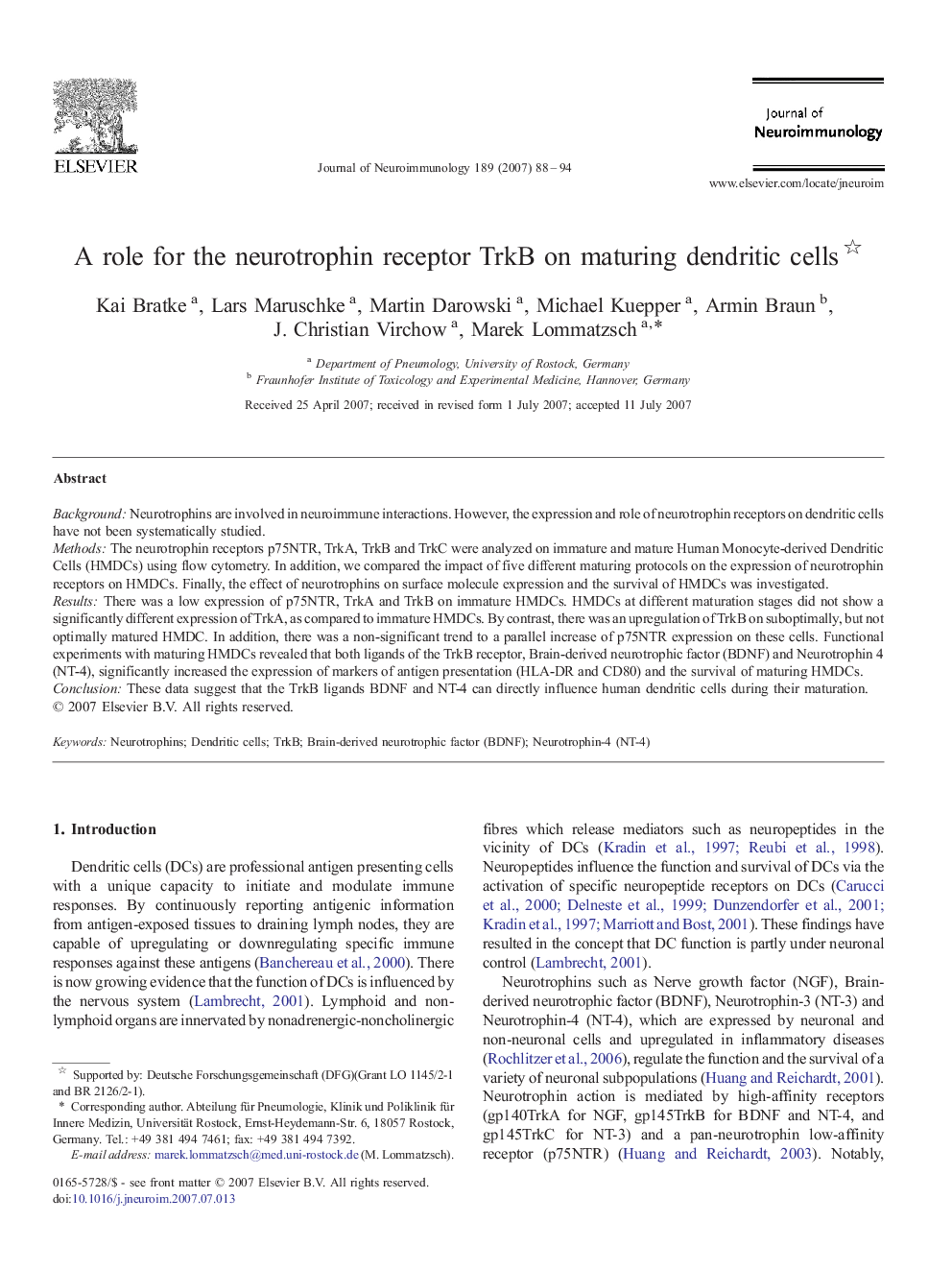| Article ID | Journal | Published Year | Pages | File Type |
|---|---|---|---|---|
| 3065487 | Journal of Neuroimmunology | 2007 | 7 Pages |
BackgroundNeurotrophins are involved in neuroimmune interactions. However, the expression and role of neurotrophin receptors on dendritic cells have not been systematically studied.MethodsThe neurotrophin receptors p75NTR, TrkA, TrkB and TrkC were analyzed on immature and mature Human Monocyte-derived Dendritic Cells (HMDCs) using flow cytometry. In addition, we compared the impact of five different maturing protocols on the expression of neurotrophin receptors on HMDCs. Finally, the effect of neurotrophins on surface molecule expression and the survival of HMDCs was investigated.ResultsThere was a low expression of p75NTR, TrkA and TrkB on immature HMDCs. HMDCs at different maturation stages did not show a significantly different expression of TrkA, as compared to immature HMDCs. By contrast, there was an upregulation of TrkB on suboptimally, but not optimally matured HMDC. In addition, there was a non-significant trend to a parallel increase of p75NTR expression on these cells. Functional experiments with maturing HMDCs revealed that both ligands of the TrkB receptor, Brain-derived neurotrophic factor (BDNF) and Neurotrophin 4 (NT-4), significantly increased the expression of markers of antigen presentation (HLA-DR and CD80) and the survival of maturing HMDCs.ConclusionThese data suggest that the TrkB ligands BDNF and NT-4 can directly influence human dendritic cells during their maturation.
